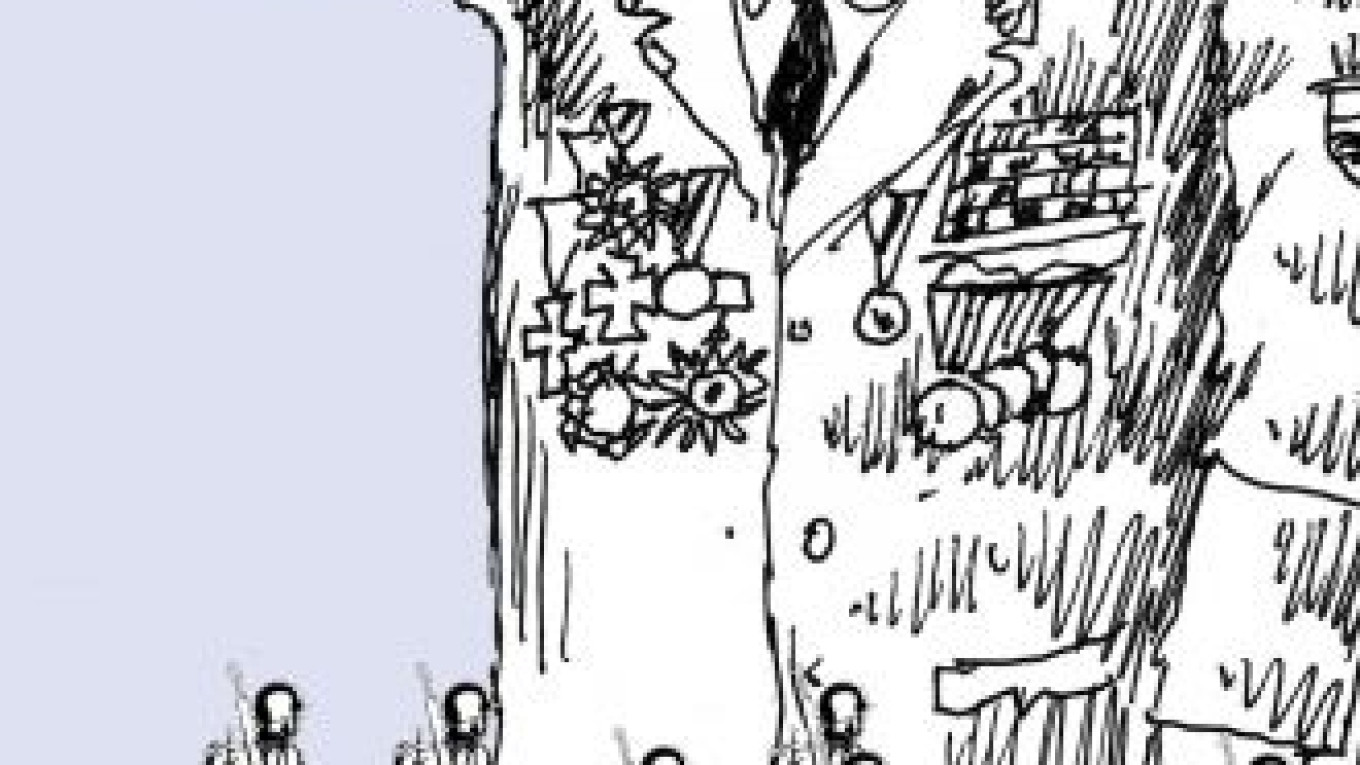General Staff chief Nikolai Makarov was the center of attention after he delivered a speech at the Academy of Military Science on March 26. He finally renounced archaic military principles that date back to the 1940s by saying Russia’s army should not be based on a principal of fighting enemies by sending line after line of soldiers and tanks to penetrate enemy lines, the chief strategy used by the Soviet Army during World War II.
This would seem like an obvious conclusion, but there are many leading military experts and policymakers, such as General Makhmut Gareyev, 87, president of the Academy of Military Science, who still believe that Russia should be preparing for another land-based world war by preserving its mass-mobilization linear-line strategy. Until Makarov’s March speech, it wasn’t clear whether he supported Gareyev’s outdated vision of the military or whether he was closer to the reformers’ vision of what a modern 21st-century army and its strategy should look like.
The most important component of Makarov’s speech was his recognition of the need for an army made up of about 425,000 professional contract soldiers, with conscripts accounting for no more than 10 percent to 15 percent of all troops. As far as can be determined at this stage, the military draft will continue with the goal of identifying top candidates for professional service and for establishing a modest reserve of troops to be used if larger mobilizations are needed.
At first, I was pleased as Punch listening to Makarov. It was almost as if he read the recent report by the Institute of Contemporary Development, a liberal think tank, on how to reform and modernize Russia under the next president — in particular, the chapter I wrote on how to reform the army. But then I realized that Makarov’s seemingly reformist position means little. After all, only several months ago, he spoke about the compelling need to keep the bloated conscript army in place, and I have reason to suspect that Makarov will flip right back to his former position in several more months, or sooner.
The reason for my suspicion is because the military establishment is still dominated by dinosaurs. Deputy Prime Minister Sergei Ivanov, who wasted billions of dollars as defense minister trying to preserve a mass-mobilization army, still has influence among supporters of the this Soviet model. Vasily Smirnov, who is responsible for the organization and mobilization of the military, did everything in his power to thwart the transition to a contract army. And then there is Gareyev, who is always ready to speak ad nauseam upon the universal applications of lessons from World War II and the advantages of a square wheel.
But I am still reserved in my enthusiasm about Makarov’s apparent shift toward the reformers. True, for the moment the military dinosaurs seem to have suffered a setback, but soon they will mount another attack in favor of the mass-
mobilization conscript army, and military reformers will be forced to back down.
This is because it is impossible to implement radical military and other reforms to a single institution without reforming the entire authoritarian system of government. And without support from the public, military reformers will always be hostages to the political tug of war between the president and prime minister. And reformers cannot single-handedly hold sway against the entire Russian bureaucracy that has no interest whatsoever in reforming the decaying army.
Alexander Golts is deputy editor of the online newspaper Yezhednevny Zhurnal.
A Message from The Moscow Times:
Dear readers,
We are facing unprecedented challenges. Russia's Prosecutor General's Office has designated The Moscow Times as an "undesirable" organization, criminalizing our work and putting our staff at risk of prosecution. This follows our earlier unjust labeling as a "foreign agent."
These actions are direct attempts to silence independent journalism in Russia. The authorities claim our work "discredits the decisions of the Russian leadership." We see things differently: we strive to provide accurate, unbiased reporting on Russia.
We, the journalists of The Moscow Times, refuse to be silenced. But to continue our work, we need your help.
Your support, no matter how small, makes a world of difference. If you can, please support us monthly starting from just $2. It's quick to set up, and every contribution makes a significant impact.
By supporting The Moscow Times, you're defending open, independent journalism in the face of repression. Thank you for standing with us.
Remind me later.


